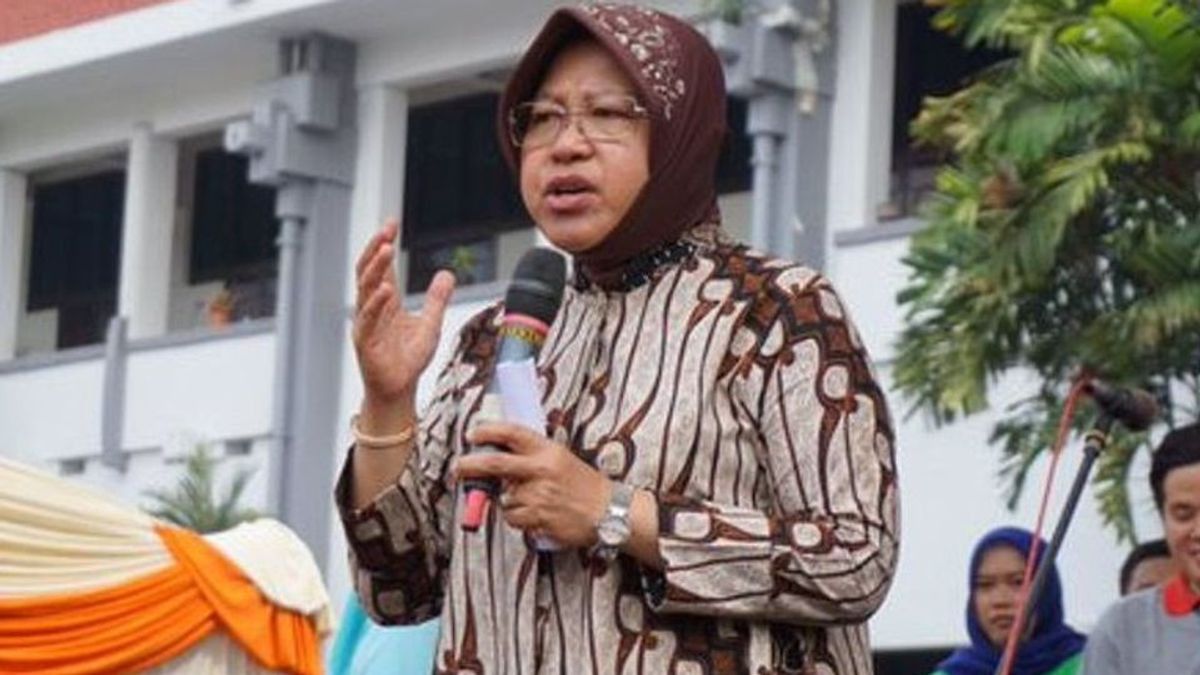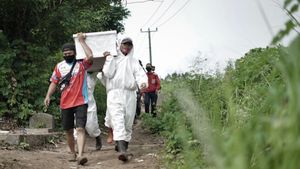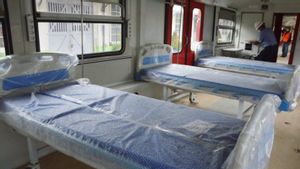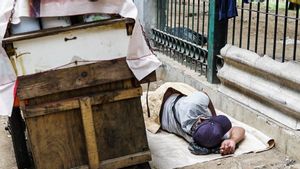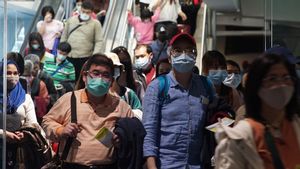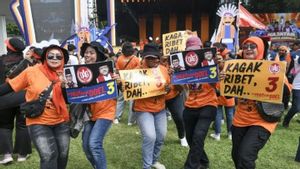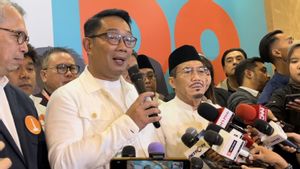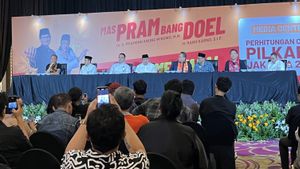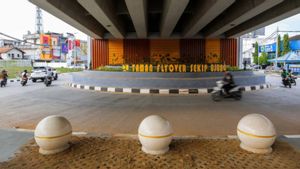JAKARTA - The statement by the Minister of Social Affairs (Mensos) Tri Rismaharini who threatened to move her employees to Papua has drawn criticism. She is considered to strengthen the stigma that Papua is an underdeveloped region. Indeed, we cannot deny that fact. But instead of potentially stigmatizing, it would be better for Risma to find a way to raise the issue from the Cenderawasih Earth.
The statement was made when Risma scolded an employee of the Wyata Guna Social Rehabilitation Center for Persons with Disabilities, Bandung, Tuesday, July 13. Her anger overflowed when she saw that many State Civil Apparatuses (ASN) were still relaxing in the office, not ready to help with the operation of the public kitchen which was being held.
Risma then threatened to move all ASN of the Ministry of Social Affairs to Papua if they still refused to help with the operation of the soup kitchen. "I don't want to see it like this, if I look again, I'll move you to Papua. I can't fire you if nothing goes wrong, but I can move you to Papua there," she said.

Strengthen the stigma
Risma's statement drew criticism. Commissioner of the National Human Rights Commission (Komnas HAM), Beka Ulung Hapsara, for example, asked Risma to apologize for her words. Because this statement can strengthen the stigmatization of Papua and the Papuan people.
In fact, according to Beka, Papua is an area that is equal to other regions in Indonesia. He considered that Papua should not be a place of disposal or punishment for people who are considered unable to work well.
"Papua is not a place of disposal and punishment for those who are deemed unable to work. Papua is equal and on an equal footing with other regions in Indonesia," Beka said as quoted by Kompas.
Therefore, Beka instead asked Risma to send her best subordinates to work in Papua. This is done to help and protect the dignity of the Papuan people.
Papua Condition
Indeed, we cannot turn a blind eye, if the welfare condition of Papua is still far behind other regions in Indonesia. As is known, Papua is the province with the highest poverty rate in Indonesia.
Based on data from the Central Statistics Agency (BPS), the poverty rate in Bumi Cenderawasih in 2020 reached 26.8 percent. Papua's position is followed by West Papua with a poverty rate of 21.7 percent.
The poverty rate in Papua even increased from the previous year in the same period, namely 26.55 percent. The same thing happened in West Papua. In 2019, in the same period, the poverty rate in the province was 21.51 percent.
This figure is much higher than the national average of 10.1 percent. And sadly, Papua's poverty rate has not changed since the New Order era.
A large number of poor people in Papua is one of the causes of the low quality of Human Resources (HR). BPS data recorded that the Human Development Index (HDI) in Papua in 2020 was the lowest of 34 provinces in Indonesia, namely 60.44. This rate even decreased from the previous year by 60.84.

The root of the problem
Director of the Center of Economic and Law Studies CELIOS Bhima Yudisthira said poverty in Papua is structural. One of the reasons, said Bhima, is that Papua is too dependent on commodities, especially mining.
"Structurally, Papua is too dependent on commodities, especially mining, so structural poverty is real. Some of the natural resources that are mined are only enjoyed by a few native Papuans," Bhima told VOI.
In addition, Bhima said, another problem faced by Papua is the imbalance in infrastructure development. "Then the unequal infrastructure development with Sulawesi and Java is also a major problem."
Meanwhile, on the ground, the problem of hindering the welfare of Papuans is even more complicated. Papuan Political Observer, Frans Maniagasi in his writings in Media Indonesia, said that one of the obstacles to the progress of the Papuan people is that each ministry or institution often shows sectoralism in the field. In fact, it is not uncommon to find fictitious programs.
"The reality on the ground shows that because they don't know for sure the aspirations and needs of the community, they are wrong in the allocation of programs and budgets. As a result, people only become targets of programs that are not their aspirations and needs," said Frans.
As a result, according to Frans, there was an assumption from the community that the program was just a deceitful project. "The program is made by ministries/agencies in Jakarta with no adequate field data. The people are only a stamp between the compilers and program makers with billions of rupiah in funds."
Now back to Social Minister Risma. Maybe it would be better now to end the anger. So, rather than potentially intensifying the stigmatization of the region and the people of Papua, it would be nobler if Risma, as Social Minister, seeks ways to improve the welfare of the Papuan people.
It's time to find a way
According to the Economist Bhima Yudhistira, it is actually not impossible that Risma can solve the problem of Papua's welfare. Regarding institutional ego, for example, according to Bhima, this can be overcome by increasing inter-ministerial cooperation. "Actually, this can be done by coordinating with inter-ministerial agencies, including the Special Autonomy issue."
"Risma is not a specific regional mayor but has become a minister with a national scope. She should be able to represent the voice of the Papuan people to get a fairer development program," said Bhima.
In addition, Bhima said, as Social Minister, Risma has an important role to play in ensuring that data on multiple recipients of assistance can be completed immediately. "This is necessary to guarantee food assistance and non-cash assistance."
Next, what Risma can do is fight for Papua to get a much larger allocation of funds than other regions. "Because of the high poverty rate in Papua, as well as the large number of vulnerable people who are under pressure due to the COVID-19 pandemic," he concluded.
*Read other information about PAPUA or other interesting articles from Ramdan Febrian Arifin.
Other SOLID NEWS
SEE ALSO:
The English, Chinese, Japanese, Arabic, and French versions are automatically generated by the AI. So there may still be inaccuracies in translating, please always see Indonesian as our main language. (system supported by DigitalSiber.id)
